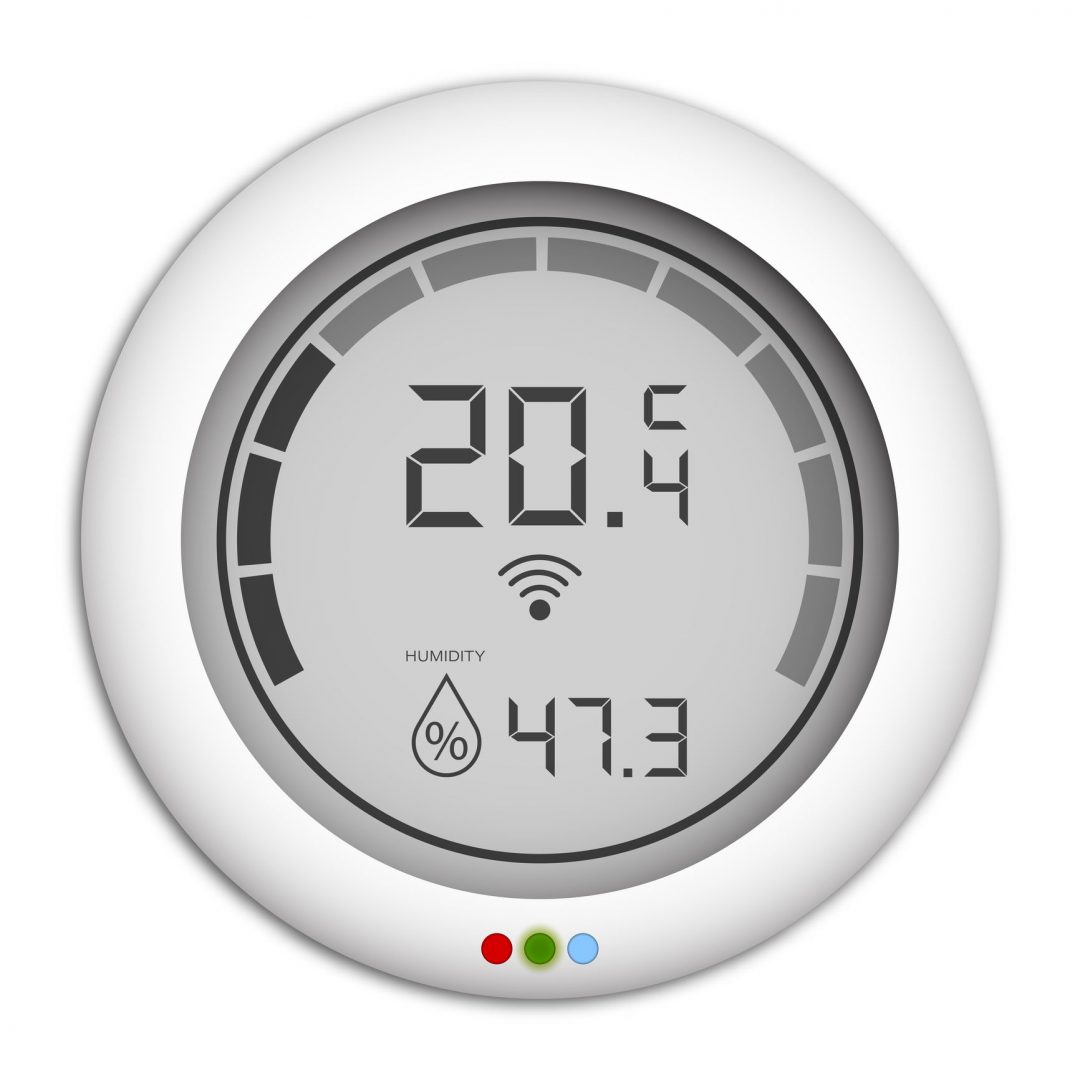
29 Dec What Is a Good Basement Humidity Level?
Whether you want to create storage space, a workshop, or an extra living area, your home’s basement is usually the first place that will come to mind. However, if you want to make the most of your basement, maintaining appropriate humidity levels is crucial.
High or low humidity levels can be dangerous to your home and health. Uncontrolled levels of humidity in the basement can lead to all sorts of problems, including mould growth and condensation on windows and toilet tanks.
Worst of all, high humidity levels can adversely affect the human body. It can trigger asthma and lead to other health complications such as hypothermia, dehydration, fatigue, and lethargy.
With that said, regulating your basement’s humidity level is critical to ensuring your safety and your home’s structural integrity.
What Is the Ideal Basement Humidity Level?
A basement humidity level of 30 – 50% is considered ideal.
Anything over 50% will encourage mould growth. If you’re wondering whether a 70% humidity level is too high for a basement, the answer is yes, it is too high. To be on the safer side, your basement’s humidity level should not cross the 50% mark.
The Right Basement Humidity Levels During Summer
The outside air is warmer and more humid in the summer than other months.
When warm air flows into the basement during the summer, humidity levels can rise high enough to cause mould and mildew growth. The ideal humidity level for the basement during summer is 50%. You could also use a dehumidifier to keep the humidity levels in check during the summer.
The Right Basement Humidity Levels During Winter
During the winter, the lower temperatures outside can drop the humidity levels in your basement to below 50%. The low humidity levels in your basement can adversely affect your health, causing you to have nosebleeds, dry skin, and other illnesses common during winter.
If you live in a cold region with temperatures around zero to ten degrees, you should go for 30 to 50% humidity inside your basement. However, if you live in frigid areas where the temperature falls below zero degrees, your basement humidity should be between 20 and 30%.
Factors Affecting Basement Humidity Levels
Humidity in the basement is a common problem that can result in many issues. From structural damage to toxic mould and health issues, basement moisture can result in a lot of problems.
1. Condensation
Condensation in the basement occurs when warm, moist air comes in contact with cool basement surfaces—walls and floors. As the surfaces cool the warm air, moisture is created. One way to deal with condensation in your basement is to check the exhaust of your drier and drain the central air conditioner. Ensure there’s no clogging and air is flowing freely.
2. Having Few or No Windows
Basements are usually dark, enclosed spaces within a house.
These spaces are usually damper than the rest of the home due to poor ventilation and tight airflow. Your basement is typically airtight, meaning moisture or water vapour that enters the space cannot escape on its own.
3. Ventilation
Improper ventilation can increase humidity in the basement.
If you have a basement that has a kitchen or bathroom, installing an exhaust fan can allow the free flow of air to stop humidity from occurring. Adding an air conditioner vent can also be very effective in regulating airflow in the room.
4. Climate
Sometimes, humidity can result from factors outside your control. For instance, if you live in a region with regular rainfall and high humidity levels, your chances of having humidity in the basement are pretty high.
This is because the air around and inside your basement will be saturated with moisture, which ends up increasing the humidity level in the space. You might notice more humidity in the basement than in other rooms due to poor ventilation.
Why It’s Important to Track Your Basement Humidity Levels
Good indoor air quality is essential, which is why it’s important to balance your basement’s humidity levels. If your basement’s humidity levels don’t fall within the ideal range, it can result in many adverse effects, including health issues.
Whether high or low, uncontrolled humidity levels aren’t good for your home and health.
High Humidity Levels
High humidity levels can result in dire health issues. Extreme levels of humidity can increase bacteria and mould particles, since they thrive in humid environments. Biological pollutants like these can lead to serious respiration issues.
Low Humidity Levels
Low humidity levels can also exacerbate respiratory issues.
Reduced humidity can trigger conditions like asthma and chronic bronchitis. It can also result in nosebleeds, itchy eyes, and chapped lips.
If the indoor air is excessively dry due to low humidity, wallpaper can peel away from the walls. At extremely low levels (less than 10%), building materials and wood furniture can shrink, leading to warping or cracking.
Controlling Humidity Levels in Your Basement
Controlling the humidity level in your basement should be a priority to avoid the negative impacts of uncontrolled moisture levels.
Luckily, there’s an easy way to keep your basement humidity levels in check. One way is to use a dehumidifier. When humidity levels go too high, you can use the dehumidifier to lower the levels to the recommended 30 to 50%.
At Penguin Basements, we’re committed to ensuring Canadians have the best experience possible with the comfort and design of their basements. Reach out to a member of our team today with any questions you may have about your basement humidity levels, along with design changes you may be considering, and we will be happy to help.
Christian Saunders, a seasoned marketing professional hailing from Toronto, Ontario, brings over 5 years of valuable experience to our team.
As a key member of our company, Christian plays a pivotal role in crafting compelling content that you encounter on our website and social media platforms. With a keen eye for detail and a passion for effective communication, Christian ensures that our brand's message resonates with our target audience. Beyond his desk, you might spot Christian on our job sites, skillfully capturing multimedia to enhance our visual storytelling.
Don't hesitate to say hello when you see him in action! Christian's dedication and expertise contribute significantly to our mission of delivering exceptional experiences to our valued clients.




